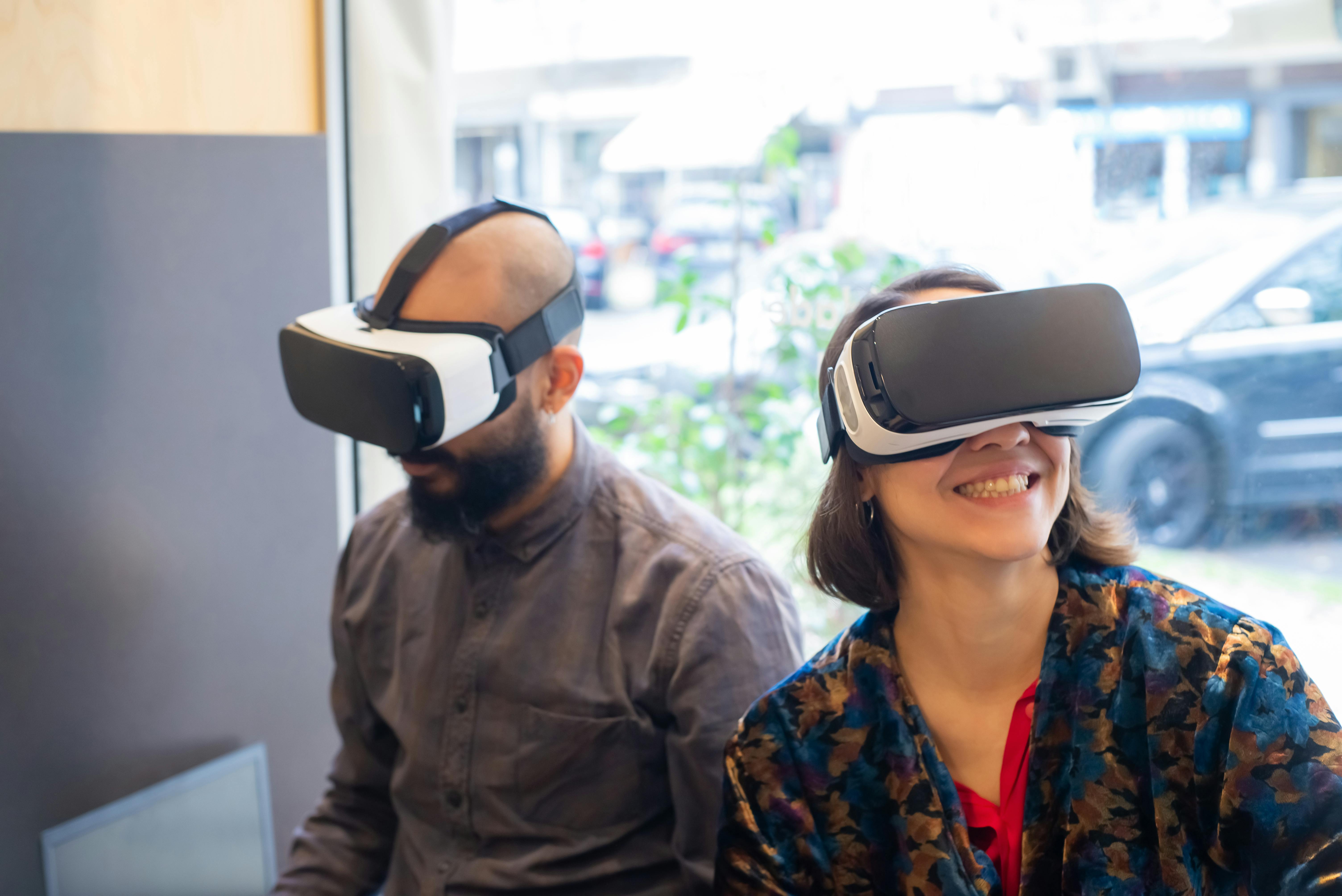Using Metaverse for Retail to Boost Customer Engagement
Aug 1, 2024
In today's fast-paced digital age, retail businesses are constantly seeking innovative ways to enhance customer engagement and improve shopping experiences. One groundbreaking technology that is transforming the retail landscape is the metaverse for retail. This virtual universe is not just a buzzword; it is a powerful tool that offers immersive and interactive experiences that captivate customers and drive sales. This article explores how the metaverse can revolutionize the retail industry, providing unique insights into its benefits, applications, and future potential.
Introduction to the Metaverse for Retail
The metaverse for retail is an interconnected digital space where consumers can interact with brands in a fully immersive environment. This virtual world blends physical and digital realities, allowing customers to experience products and services in novel ways. From virtual stores to augmented reality shopping, the metaverse offers endless possibilities for enhancing customer engagement and transforming the retail experience.
Benefits of the Metaverse for Retail
Enhanced Customer Engagement
One of the most significant benefits of the metaverse is its ability to boost customer engagement. Traditional retail methods often struggle to capture and retain consumer interest. The metaverse, however, offers a dynamic and interactive environment where customers can explore products, interact with virtual sales associates, and participate in immersive experiences that keep them engaged longer.
Personalized Shopping Experiences
In the metaverse, retailers can create highly personalized shopping experiences tailored to individual preferences and behaviors. Advanced data analytics and artificial intelligence (AI) enable brands to offer customized product recommendations, virtual try-ons, and interactive guides that enhance the shopping journey.
Increased Brand Loyalty
By providing unique and memorable experiences, the metaverse helps build stronger emotional connections between customers and brands. Engaging in virtual events, participating in exclusive product launches, and interacting with brand ambassadors in the metaverse can significantly boost brand loyalty and customer retention.
Data-Driven Insights
The metaverse generates vast amounts of data on customer interactions and preferences. Retailers can leverage this data to gain valuable insights into consumer behavior, optimize marketing strategies, and improve product offerings. This data-driven approach helps brands stay ahead of trends and meet customer needs more effectively.
Applications of the Metaverse in Retail

Virtual Stores
Virtual stores are a cornerstone of the metaverse for retail. These digital spaces replicate the physical shopping experience, allowing customers to browse products, interact with virtual sales staff, and make purchases from the comfort of their homes. Virtual stores can be accessed via VR headsets, desktops, or mobile devices, offering flexibility and convenience.
Augmented Reality (AR) Shopping
AR shopping combines the physical and digital worlds, enabling customers to visualize products in their real-life environment before making a purchase. For example, furniture retailers can use AR to show customers how a new sofa would look in their living room, while fashion brands can offer virtual try-ons for clothing and accessories.
Interactive Product Demos
The metaverse allows retailers to create interactive product demos that provide a deeper understanding of their offerings. Customers can engage with 3D models, watch how-to videos, and participate in virtual workshops that showcase product features and benefits. This interactive approach enhances product knowledge and increases purchase confidence.
Virtual Fashion Shows
Fashion brands are leveraging the metaverse to host virtual fashion shows, showcasing their latest collections in a captivating and interactive format. These events can be attended by a global audience, breaking down geographical barriers and providing exclusive access to new product launches and brand experiences.
Challenges and Considerations
Technical Barriers
Implementing metaverse technologies requires significant technical expertise and infrastructure. Retailers must invest in VR and AR hardware, develop high-quality digital content, and ensure seamless integration with existing systems. Overcoming these technical barriers is crucial for a successful metaverse strategy.
Cost of Implementation
The initial cost of adopting metaverse technologies can be substantial. Retailers need to allocate budget for hardware, software development, and content creation. However, the long-term benefits of increased customer engagement and sales can outweigh these initial investments.
Privacy and Security
As with any digital platform, privacy and security are major concerns in the metaverse. Retailers must implement robust security measures to protect customer data and ensure compliance with regulations. Addressing these concerns is essential for building trust and maintaining a positive brand reputation.
Future of the Metaverse in Retail
Emerging Trends
The future of the metaverse for retail is filled with exciting possibilities. Emerging trends include the integration of AI and machine learning for personalized shopping experiences, the use of blockchain for secure transactions, and the development of more sophisticated VR and AR technologies that enhance immersion and interactivity.
Potential Innovations
Innovations such as haptic feedback, which provides physical sensations, and advanced AI-driven avatars will further revolutionize the metaverse shopping experience. These technologies will make virtual interactions more realistic and engaging, creating new opportunities for customer engagement and brand differentiation.
How to Get Started with the Metaverse for Retail
Choosing the Right Platform
Selecting the right metaverse platform is crucial for success. Retailers should consider factors such as scalability, user experience, and integration capabilities when choosing a platform. Popular options include Decentraland, Roblox, and Facebook's Horizon Workrooms.
Setting Clear Objectives
Retailers need to define clear objectives for their metaverse strategy. Whether it's increasing customer engagement, driving sales, or enhancing brand loyalty, having specific goals will guide the development and implementation process.
Creating Engaging Content
Content is king in the metaverse. Retailers should invest in high-quality, interactive content that captures the attention of their target audience. This includes 3D product models, virtual tours, and interactive demos that provide value and enhance the shopping experience.
Training and Support
Successful implementation of metaverse technologies requires training and support for both employees and customers. Retailers should provide comprehensive training programs to help staff navigate the new tools and platforms, and offer customer support to ensure a seamless shopping experience.
Conclusion
The metaverse for retail is more than just a trend; it is a transformative technology that offers unparalleled opportunities for enhancing customer engagement and driving business growth. By embracing the metaverse, retailers can create immersive, personalized, and interactive shopping experiences that captivate customers and foster brand loyalty. As technology continues to evolve, the potential for the metaverse in retail will only grow, making it an essential tool for future success.
Ready to take your retail business to the next level?
Partner with SpaceTo to create immersive retail experiences that captivate your customers and drive sales. Our team of experts specializes in developing and implementing innovative metaverse strategies tailored to your brand’s unique needs. Contact us to get started today.





